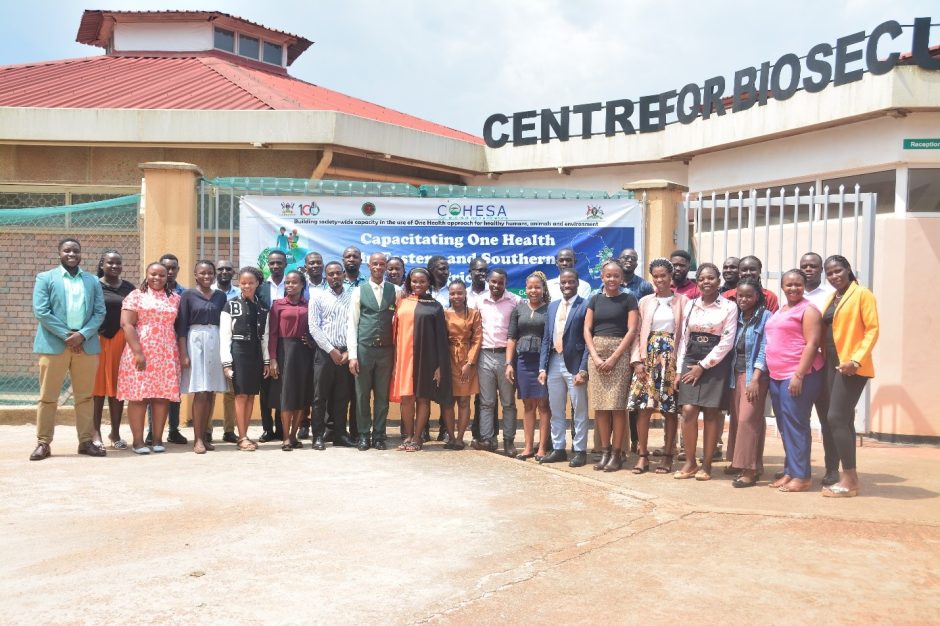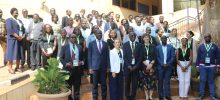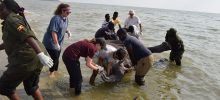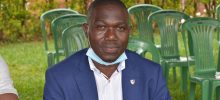CoVAB Prepares Future Educators with One Health Skills to Address Zoonotic and Climate Risks
On Monday, 22nd September 2025, the Department of Biosecurity, Ecosystems and Veterinary Public Health (BEP) at the College of Veterinary Medicine, Animal Health and Biosecurity (CoVAB), Makerere University, launched a four-day intensive training program aimed at equipping Uganda’s next generation of educators with foundational knowledge in One Health. This initiative seeks to foster interdisciplinary understanding among future teachers, emphasizing the interconnectedness of human, animal, and environmental health in addressing emerging public health challenges.
The initiative, titled “One Health Training of Uganda’s Next Generation of Teachers,” targets selected third-year education students from Makerere University, Kyambogo University, Uganda Christian University (UCU), and Kabale University, along with newly graduated teachers from across the country. The training is one of the activities of the broader Capacitating One Health in Eastern and Southern Africa (COHESA) project, a regional program spanning 12 countries aimed at strengthening interdisciplinary collaboration and promoting integrated approaches to health education and practice.
Prof. Clovice Kankya, Head of the BEP Department at CoVAB and Principal Investigator of the COHESA project in Uganda, underscored the transformative impact of the training, describing it as a strategic investment in the nation’s future health resilience. He noted that by equipping educators with foundational knowledge in One Health, Uganda is fostering a sustainable network of informed leaders capable of influencing both formal education systems and grassroots communities. These teachers will not only embed One Health principles into their curricula but also serve as local ambassadors and champions for improved sanitation, climate adaptation, and disease prevention within their communities.
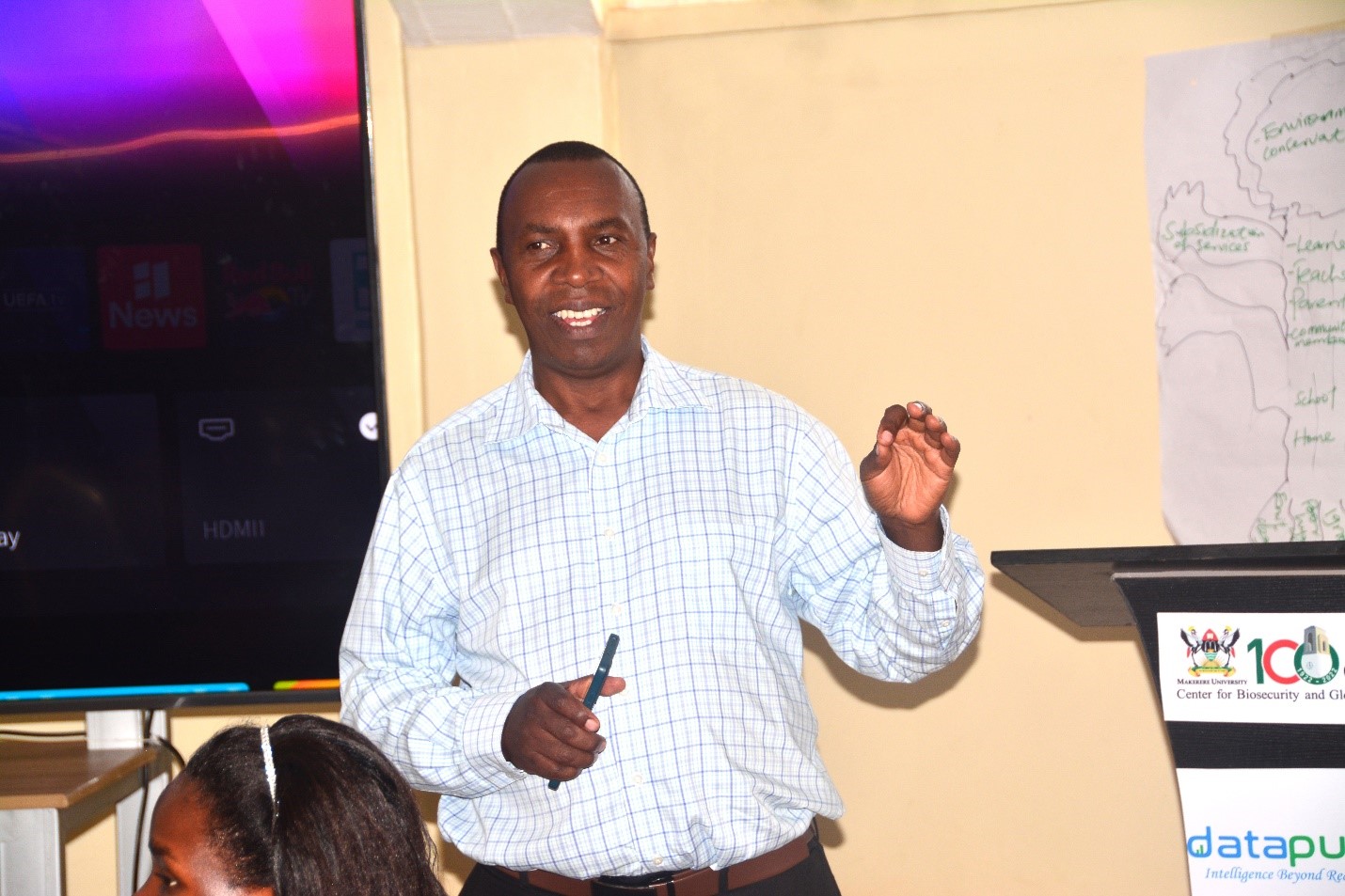
Prof. Clovice Kankya, Head of the BEP Department at CoVAB and Principal Investigator of the COHESA project in Uganda
“This is more than a training,” Prof. Kankya remarked. “It’s a movement to embed One Health thinking into the social fabric of Uganda, given that educators are trusted voices in society. When they grasp the interconnectedness of human, animal, and environmental health, they become powerful catalysts for behavioral change and community-driven action.”
He emphasized the pivotal role of teachers as agents of change, stressing that One Health, a multidisciplinary approach integrating human, animal, and environmental health, is vital for addressing today’s complex health challenges. Despite its growing global relevance, he observed that the concept of One Health remains largely underrepresented in Uganda’s education and public health sectors. This gap, he argued, makes the involvement of teachers especially critical, as they can serve as catalysts for a multiplier effect, extending the reach and impact of One Health principles across both formal education systems and local communities.
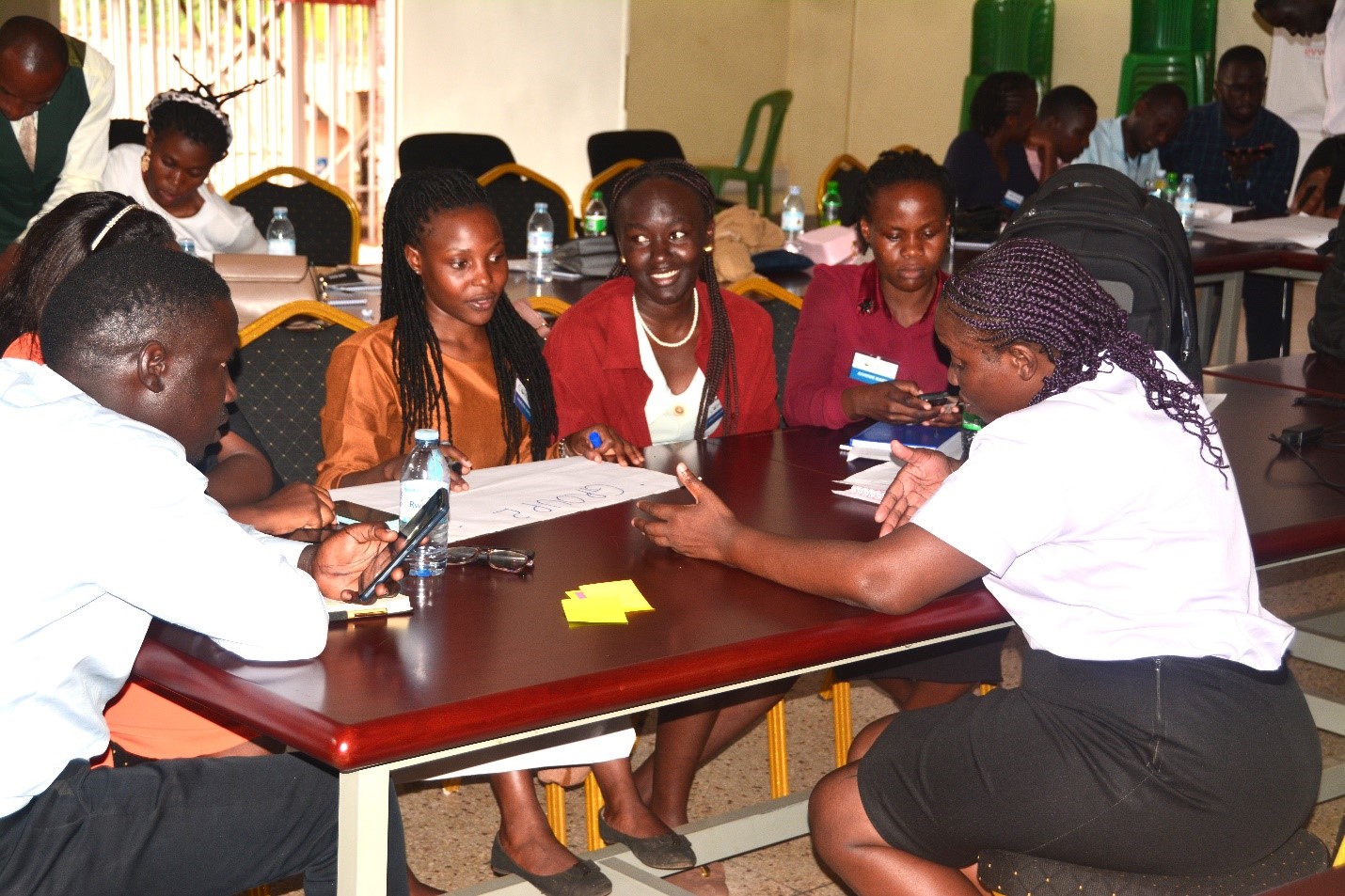
A section of the participants engaged in group work during the training
Prof. Clovice Kankya further highlighted that the ripple effect of empowering teachers will extend beyond schools, reaching homes, villages, and regional networks. In doing so, the initiative aims to build a generation of citizens who are not only aware of health risks but are also equipped to respond collaboratively and sustainably.
The trainees, drawn from diverse teaching disciplines, received instruction in key areas such as an introduction to One Health principles, zoonotic diseases and outbreak investigation, risk communication strategies, community engagement, and exit protocols, among others. Facilitators from AFROHUN and CoVAB were carefully selected for their expertise in outbreak response, strategic communication, and community-based education. The curriculum is enriched with social science perspectives to strengthen community entry approaches and promote culturally sensitive messaging, ensuring that participants are well-equipped to engage effectively with local populations.
By Harriet Musinguzi


